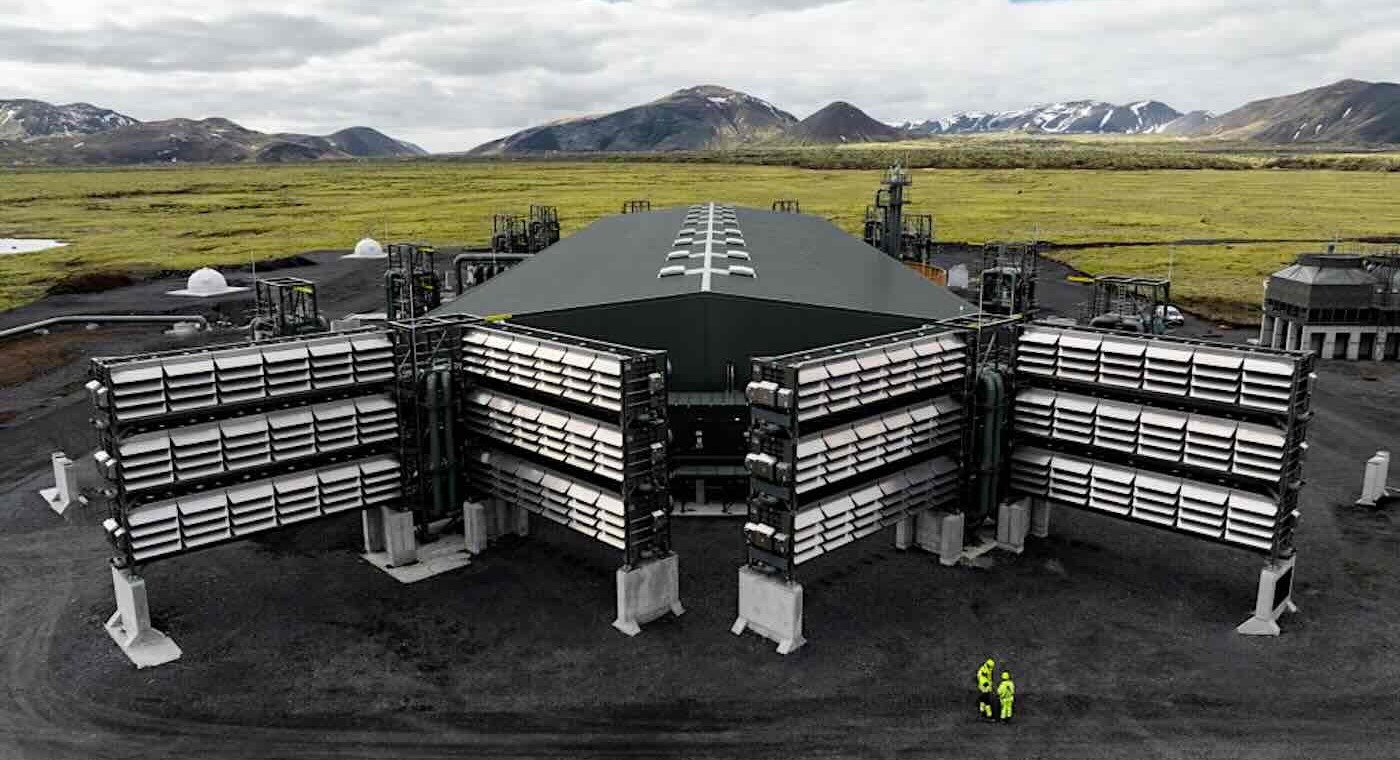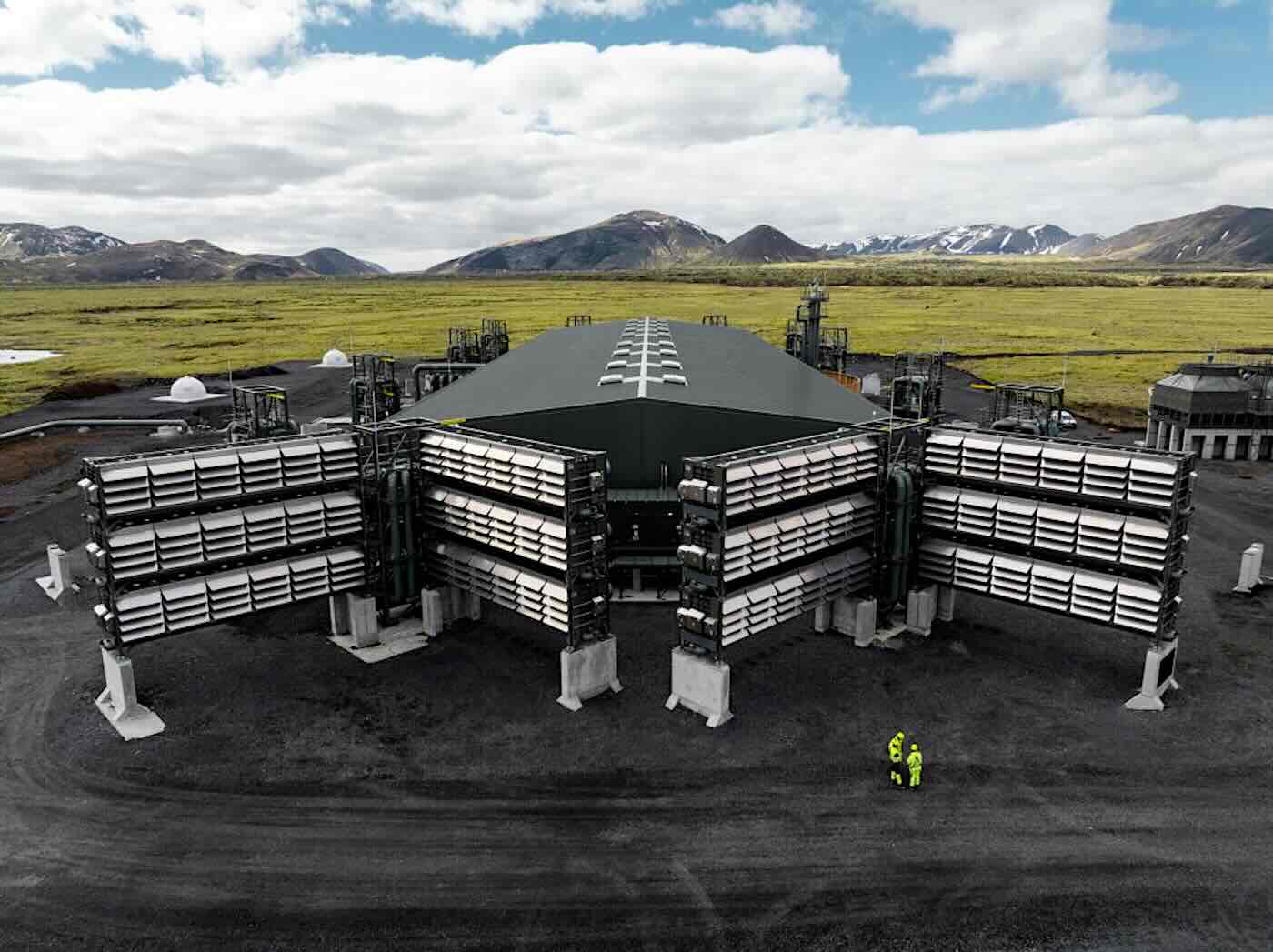ImpactAlpha, Aug. 17 – Calgary-based Carbon Engineering scored one of the first blockbuster exits in climate tech – by selling out to Big Oil.
Houston-based Occidental’s $1.1 billion acquisition reflects the oil industry’s growing interest in direct air capture, or DAC, both to generate new revenue streams from selling carbon removal credits to other corporations and to use the captured carbon to extract more oil, a process called enhanced oil recovery.
Oil producers have been the biggest buyers of captured carbon and have coined the controversial term “net-zero oil.” Occidental, backed by Warren Buffett, has had a four-year partnership with Carbon Engineering, whose investors include Buffett’s old friend, Bill Gates.
“We believe using CO2 for enhanced oil recovery and generating net-zero barrels is the way,” Oxy’s Vicki Hollub told Bloomberg last year. “The last company standing that produces the last barrel of oil should do so from CO2 enhanced oil recovery.”
Clean capture
There is growing, if grudging, consensus among climate experts that excess carbon will need to be removed from the air in order to meet global climate goals. Companies such as Microsoft and Stripe have been early buyers of carbon removal credits, paying $600 or more a ton for CO2 sucked from the air and stored underground or in products such as cement.
Investors have been pouring money into DAC startups. Climeworks raised $650 million last year, the largest-ever haul for a carbon removal startup. Investors including Microsoft’s Climate Innovation Fund and Breakthrough Energy Ventures backed Heirloom Carbon Technologies. Lowercarbon Capital invested in Massachusetts-based Verdox from its $350 million dedicated carbon removal fund.
Catalytic government capital
Last week, the US Department of Energy awarded $1.2 billion in grants to two DAC hubs, including Occidental’s Kleberg County, Texas site. A second award went to Swiss Climeworks and California-based Heirloom, which are building a DAC site in Louisiana.
The two Gulf Coast projects could collectively remove more than 2 million tons of carbon from the air annually once they are up and running. That compares to about 10,000 tons removed via the technology today.
The DOE awards are the first from $3.5 billion allocated under the infrastructure law to jumpstart regional DAC hubs and help drive down the price of carbon removal from roughly $600 a ton today to under $100.











